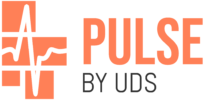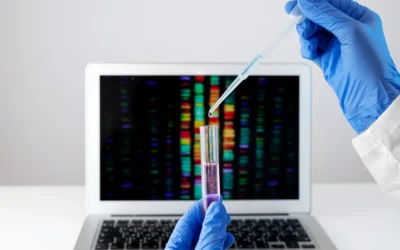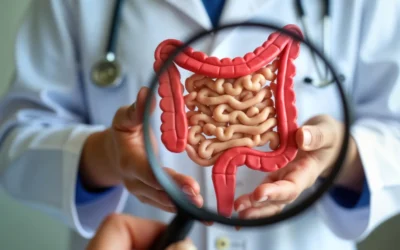Cancer is one of the most prevalent and life-threatening diseases worldwide, with millions of new cases diagnosed each year. According to the World Health Organization (WHO), cancer is responsible for nearly 1 in 6 deaths globally. Despite these alarming statistics, early detection through comprehensive screening programs has consistently shown to improve survival rates, reduce the need for aggressive treatments, and enhance quality of life.
Cancer screening involves specialized tests designed to identify cancer before noticeable symptoms develop. By detecting malignancies in their earliest stages, healthcare providers can intervene promptly, improving the likelihood of successful treatment. Understanding the available screening tests, their recommended timelines, and effective preparation strategies is essential for individuals seeking to manage their health proactively.
This guide offers a comprehensive overview of cancer screening, covering essential tests, preparation methods, recommended schedules, and strategies for overcoming common barriers to screening. By equipping yourself with this knowledge, you can make informed decisions that may dramatically reduce your risk of undiagnosed or late-stage cancer.
In This Article
Why Cancer Screening is Critical
Cancer is often described as a “silent killer” because many types present no symptoms in their early stages. By the time symptoms manifest, the disease may have progressed, limiting treatment options and reducing survival rates. Screening plays a vital role in disrupting this progression by identifying cancer at an earlier, more treatable phase.
The Impact of Early Detection
Studies reveal that early detection can increase survival rates by up to 90% for certain cancers. For example:
- Breast Cancer: When detected early, the 5-year survival rate exceeds 99% for localized breast cancers.
- Colorectal Cancer: Early detection leads to a 91% survival rate for localized cancers.
- Cervical Cancer: Routine Pap smears have reduced cervical cancer deaths by over 50% since widespread adoption.
Key Benefits of Cancer Screening
- Improved Prognosis: Identifying cancer before it spreads enables faster, more effective treatments.
- Less Aggressive Treatment: Early-stage cancers may be treated with simpler, less invasive therapies.
- Better Quality of Life: Prompt diagnosis minimizes pain, complications, and prolonged recovery.
- Prevention of Cancer Development: Some screenings detect pre-cancerous conditions that can be treated before cancer fully develops.
Common Types of Cancer Screening Tests
Different cancers require unique diagnostic tools based on the affected tissues and organs. The following are the most widely recommended screening tests, along with details on their purpose, accuracy, and preparation requirements.
1. Breast Cancer Screening
Primary Test: Mammogram
A mammogram is an X-ray image of the breast designed to detect tumors or abnormal tissue growth. This test is the gold standard for early breast cancer detection.
Additional Tests for High-Risk Individuals:
- Breast MRI: Ideal for women with dense breast tissue or strong family histories of breast cancer.
- Ultrasound: Commonly used alongside mammograms for more detailed imaging in some cases.
Screening Recommendations:
- Women aged 40–50: Annual or biennial mammograms depending on risk factors.
- Women at higher risk: Screening may begin as early as age 30.
Preparation Tips:
- Avoid deodorant, lotions, or powders on the chest or underarms before the test.
- Wear a two-piece outfit to simplify changing clothes for the procedure.
2. Colorectal Cancer Screening
Primary Tests: Colonoscopy, Fecal Immunochemical Test (FIT), Stool DNA Test
- Colonoscopy: Uses a flexible tube with a camera to examine the colon. Recommended every 10 years starting at age 45 for average-risk individuals.
- FIT Test: A non-invasive stool test that detects hidden blood. Recommended annually.
- Stool DNA Test: Screens for genetic markers associated with colorectal cancer. Conducted every 3 years.
Preparation Tips for Colonoscopy:
- Follow a clear liquid diet for 24 hours before the exam.
- Consume the prescribed bowel preparation solution to cleanse the colon.
- Avoid foods or drinks that may stain the colon lining (e.g., red or purple beverages).
3. Cervical Cancer Screening
Primary Tests: Pap Smear, HPV Test
- Pap Smear: Identifies abnormal cervical cells that may become cancerous.
- HPV Test: Detects high-risk strains of the human papillomavirus.
Screening Recommendations:
- Women aged 21–29: Pap smears every 3 years.
- Women aged 30–65: Pap smear plus HPV test every 5 years.
Preparation Tips:
- Avoid sexual activity, vaginal creams, or douching for 48 hours before the test.
- Schedule the test outside menstruation for optimal accuracy.
4. Prostate Cancer Screening
Primary Tests: PSA Test, Digital Rectal Exam (DRE)
- PSA Test: Measures prostate-specific antigen levels in the blood.
- DRE: A physical examination of the prostate.
Screening Recommendations:
- Men aged 50 or older: Annual screenings if at average risk.
- Men with high-risk factors (e.g., family history): Screening may begin at age 40.
Preparation Tips:
- Avoid ejaculation for 24–48 hours before the PSA test to prevent temporary PSA spikes.
- Inform your healthcare provider of medications that may alter PSA levels.
5. Lung Cancer Screening
Primary Test: Low-Dose Computed Tomography (LDCT)
Recommended for adults aged 50–80 with a significant smoking history.
Preparation Tips:
- No special preparation is required.
- Comfortable, metal-free clothing is advised.
6. Skin Cancer Screening
Primary Test: Dermatological Exam
A dermatologist inspects moles, lesions, and unusual skin changes.
Preparation Tips:
- Avoid wearing makeup or nail polish before the exam.
- Document any suspicious moles or lesions for your doctor’s review.
7. Ovarian Cancer Screening
Primary Tests: Transvaginal Ultrasound (TVUS), CA-125 Blood Test
Recommended for women with BRCA mutations or family histories of ovarian cancer.
Preparation Tips:
- Discuss your menstrual cycle with your provider to determine optimal timing.
- No dietary restrictions are typically necessary.
Recommended Cancer Screening Schedule
The following table summarizes common screening guidelines for average-risk individuals:
| Cancer Type | Recommended Start Age | Frequency |
|---|---|---|
| Breast Cancer | 40–50 years | Annually or Biennially |
| Colorectal Cancer | 45 years | Every 10 years (colonoscopy) |
| Cervical Cancer | 21 years | Every 3–5 years |
| Prostate Cancer | 50 years | Annually (if indicated) |
| Lung Cancer | 50–80 years (if smoker) | Annually (LDCT) |
| Skin Cancer | Adolescence (if high risk) | Annually |
| Ovarian Cancer | Varies (high-risk women) | As advised by provider |
Overcoming Barriers to Cancer Screening
Despite its proven benefits, many individuals avoid screening due to fear, misinformation, or logistical challenges. To overcome these barriers:
- Education: Understanding how screenings can save lives reduces anxiety.
- Financial Assistance Programs: Programs such as the National Breast and Cervical Cancer Early Detection Program (NBCCEDP) offer low-cost or free screenings.
- Flexible Scheduling: Healthcare providers increasingly offer weekend or evening screening appointments.
Conclusion
Comprehensive cancer screening is a powerful preventive measure that significantly improves the odds of successful treatment. By understanding the recommended tests, adhering to screening schedules, and preparing appropriately, individuals can take control of their health and increase their chances of early detection.
If you are unsure which screenings are right for you, consult your healthcare provider to develop a personalized plan that aligns with your risk profile, medical history, and lifestyle.
References
- American Cancer Society. (2023). Cancer Screening Guidelines. www.cancer.org
- Centers for Disease Control and Prevention. (2023). Cancer Screening Recommendations. www.cdc.gov
- National Cancer Institute. (2023). Early Detection and Prevention. www.cancer.gov










0 Comments